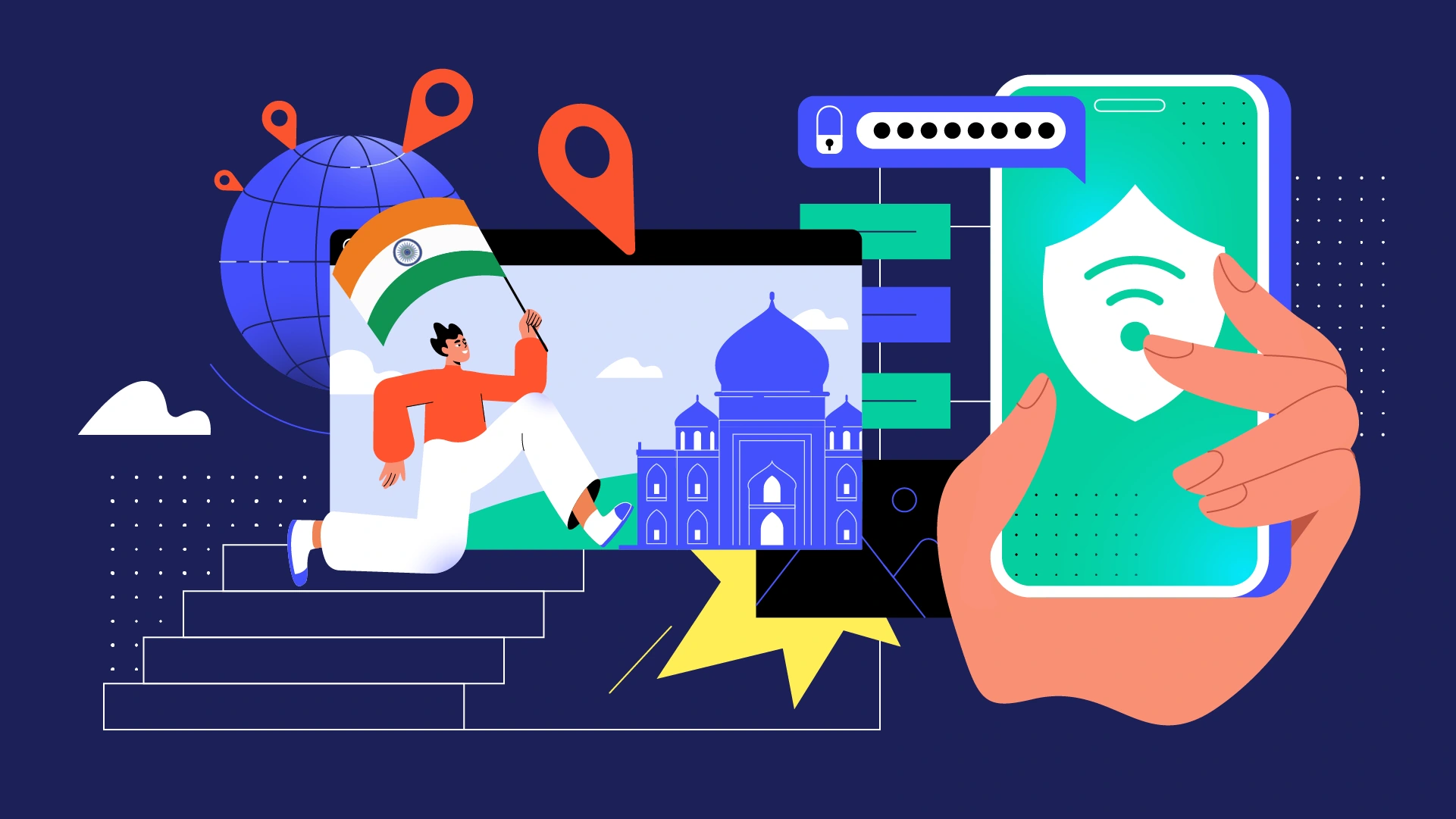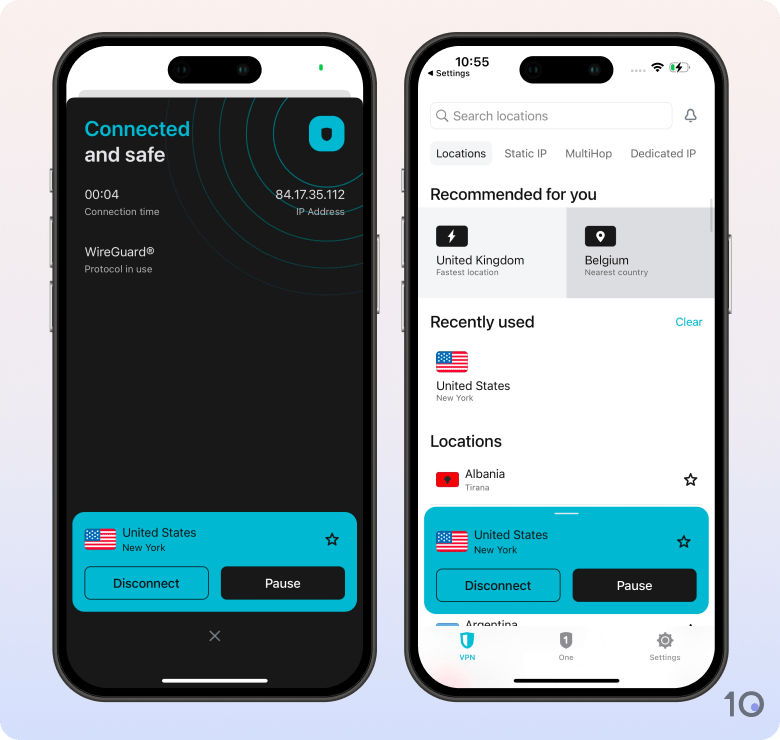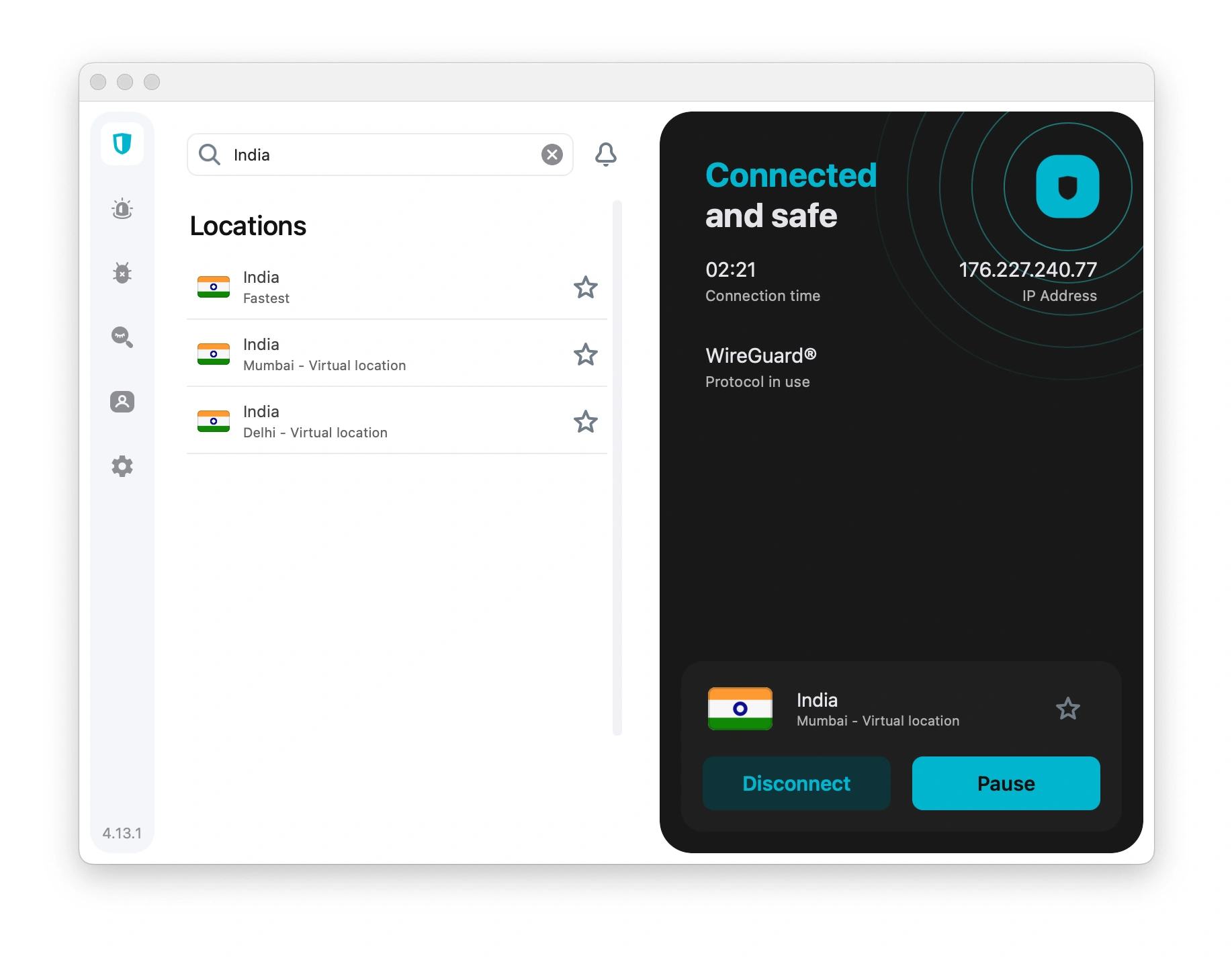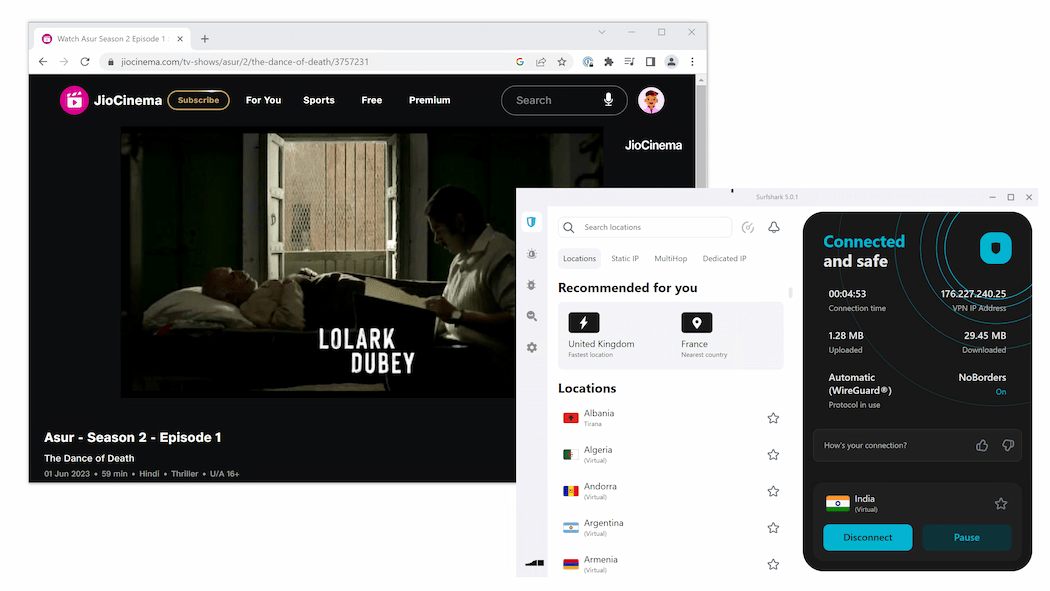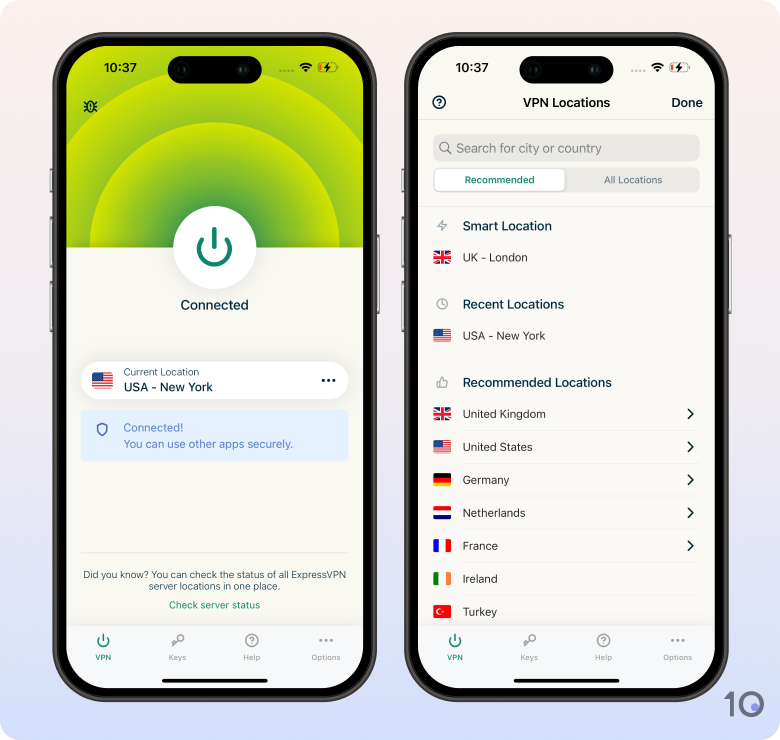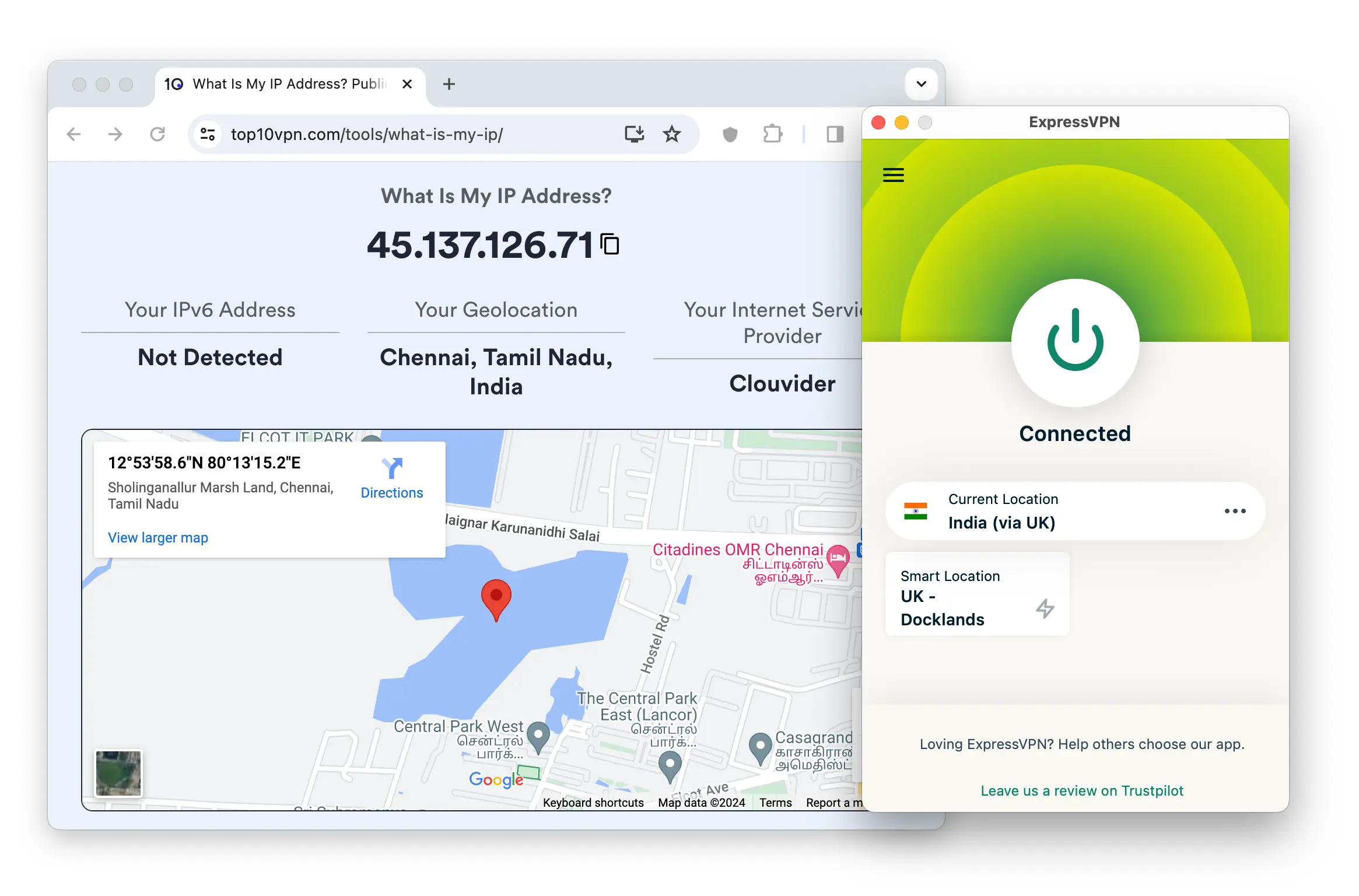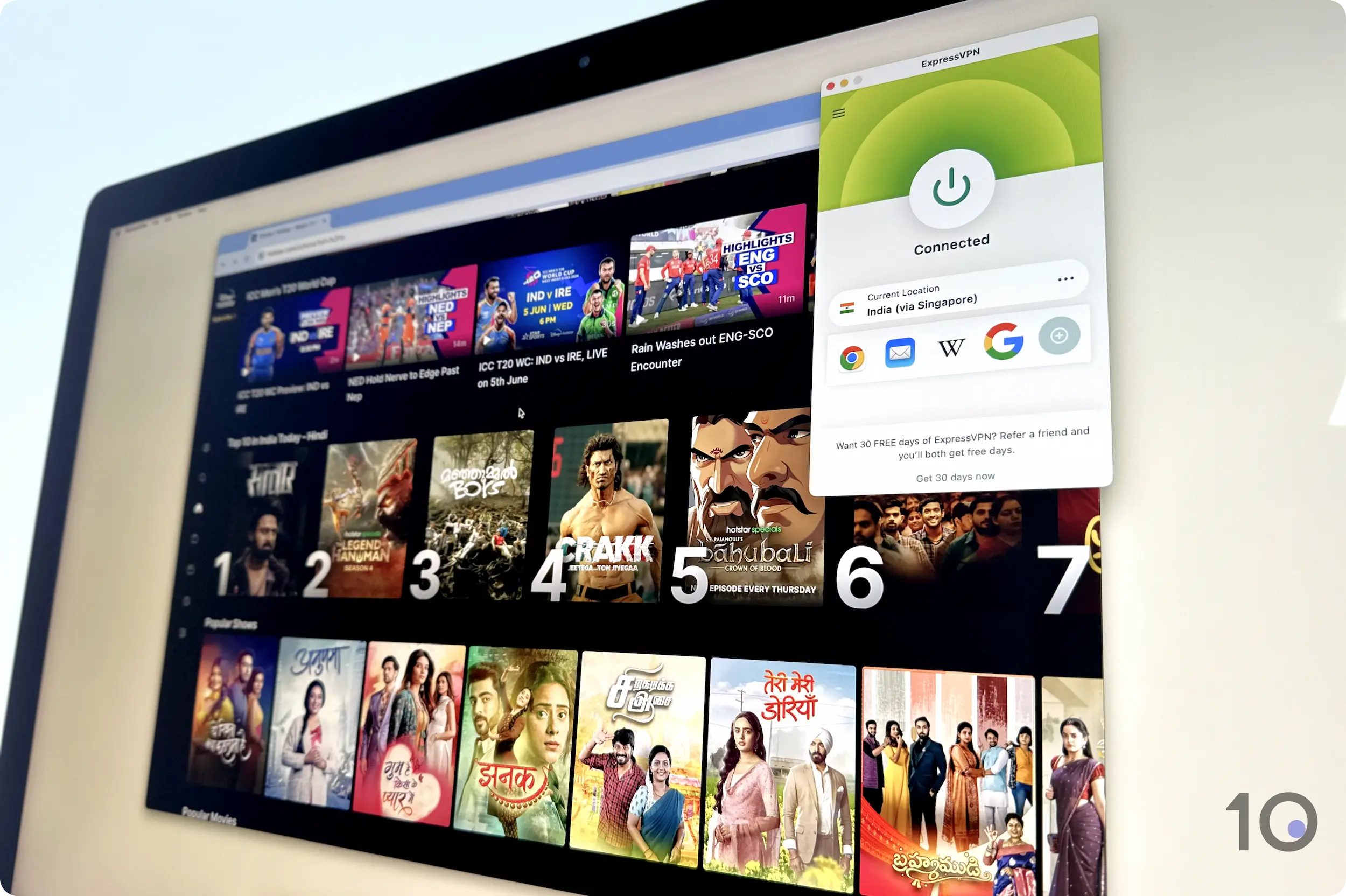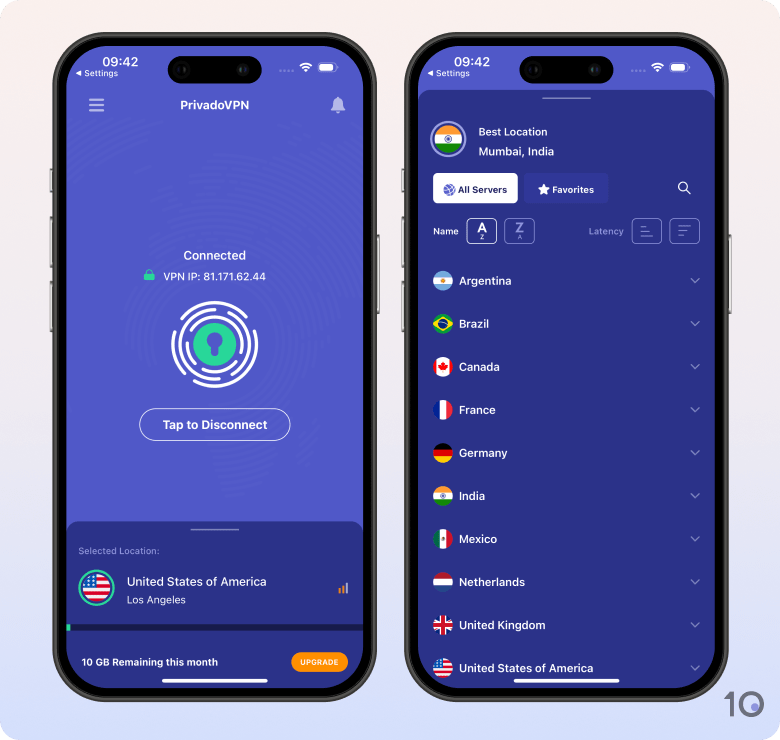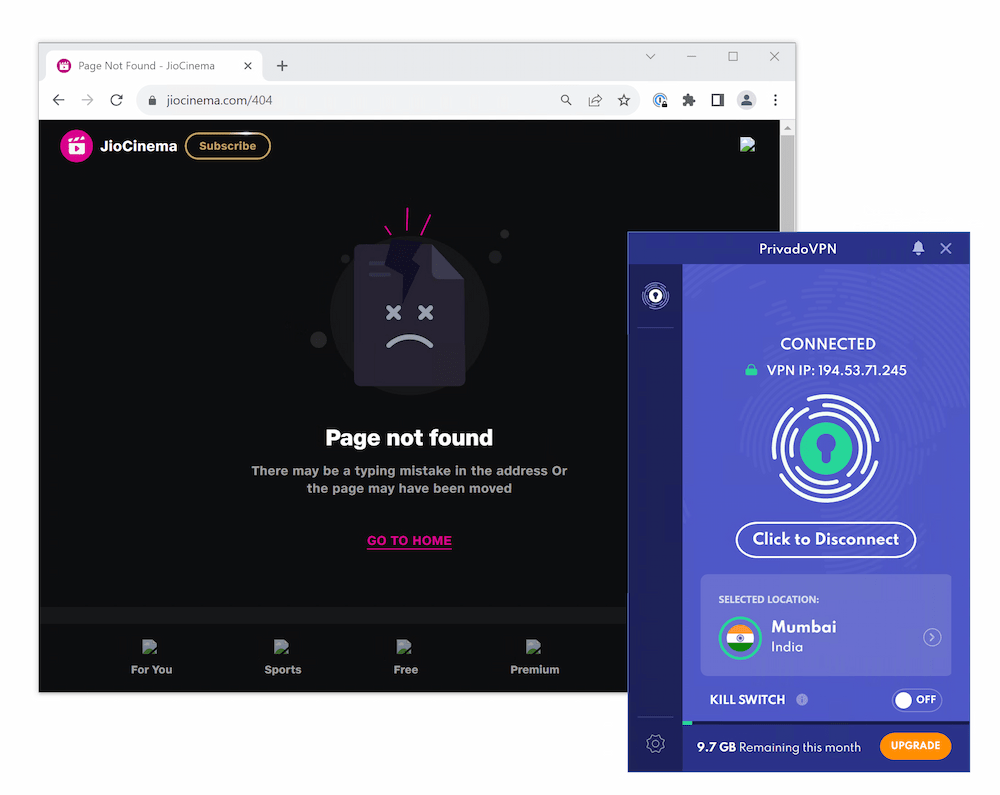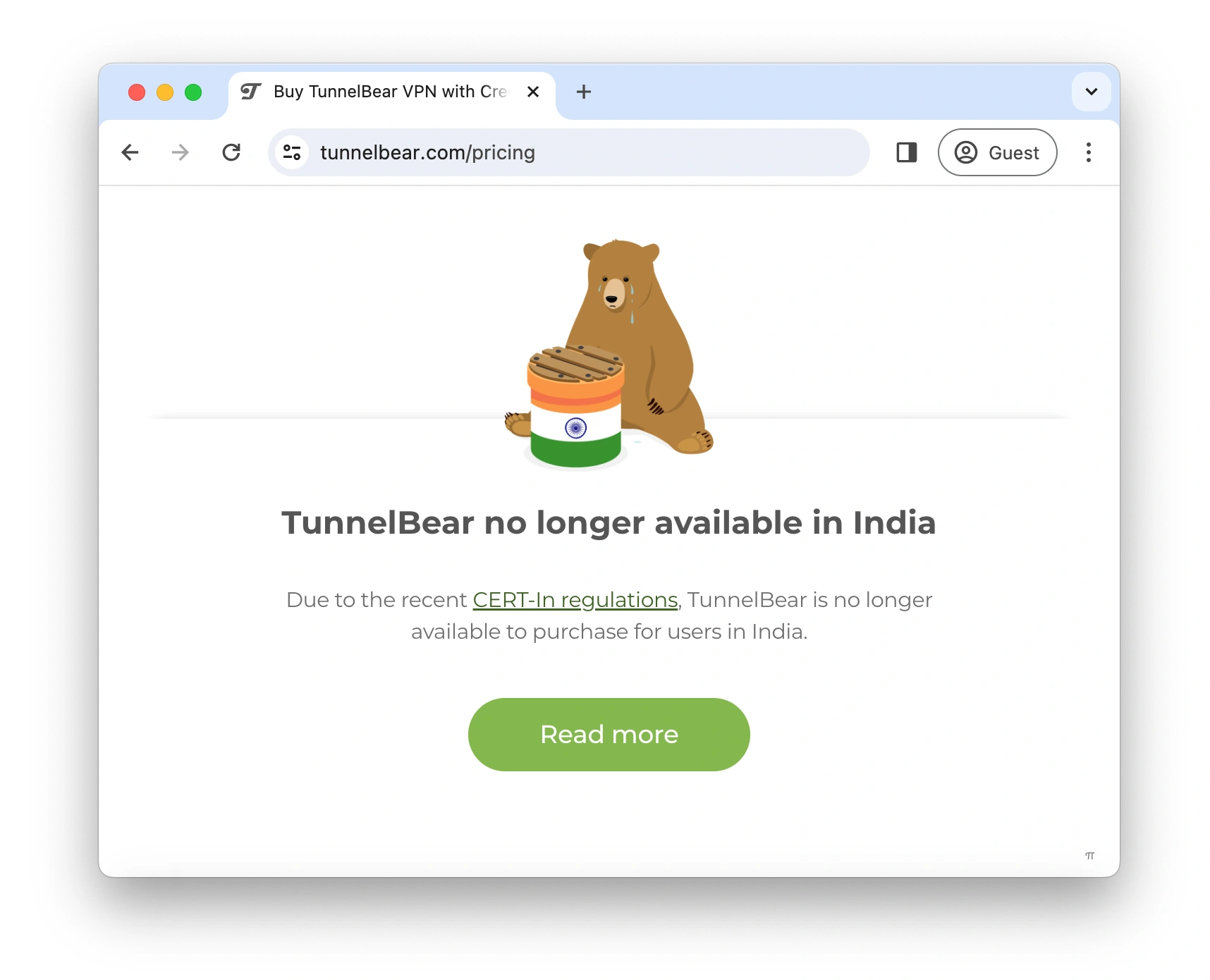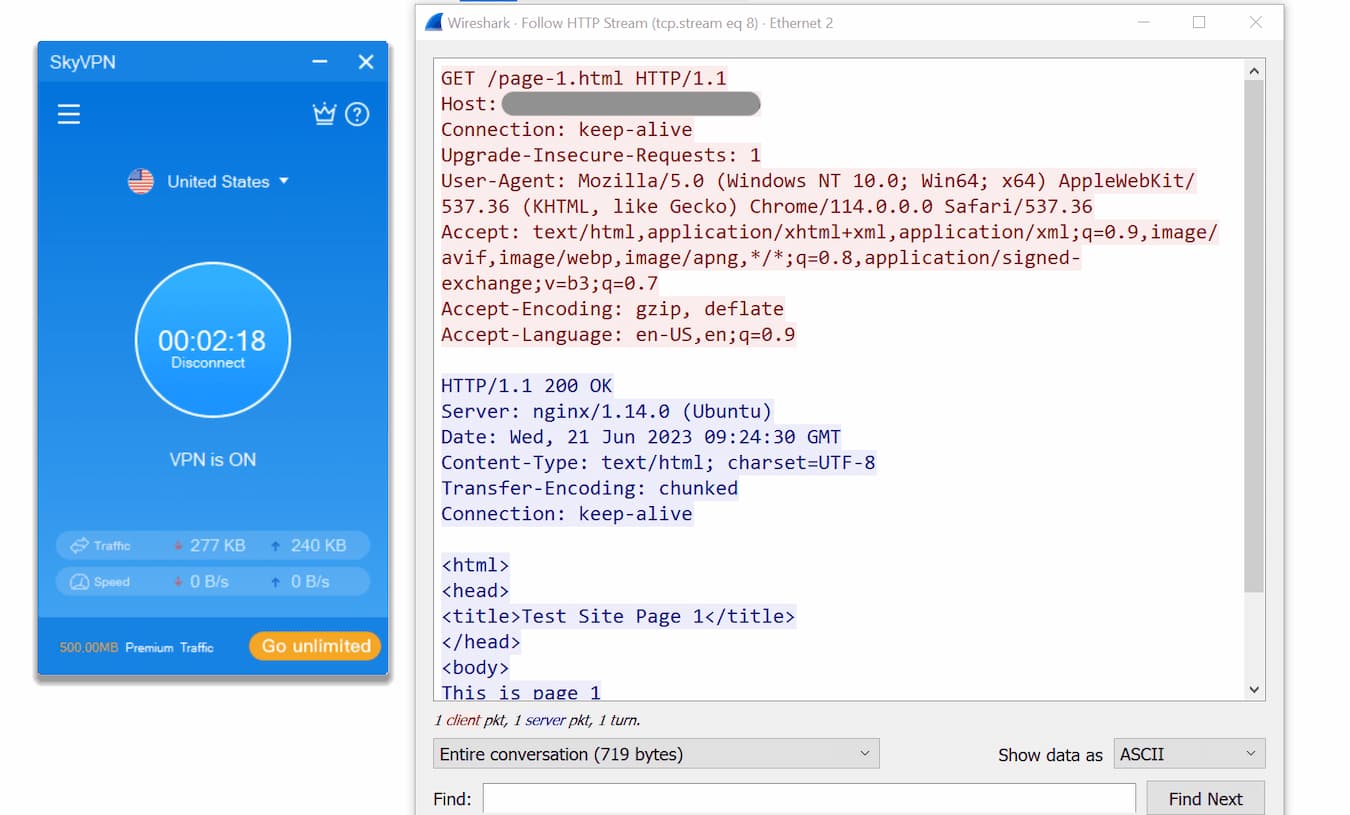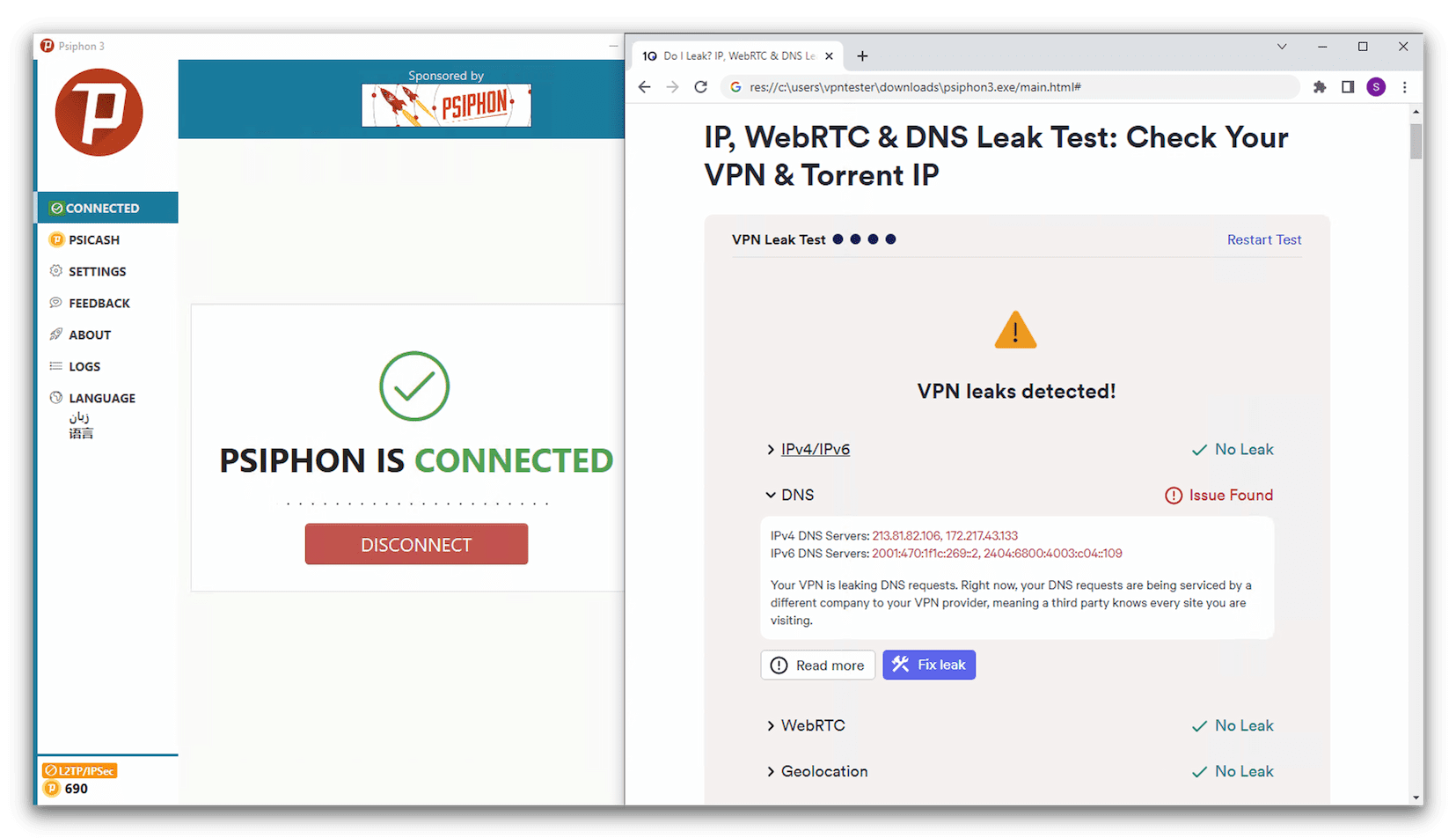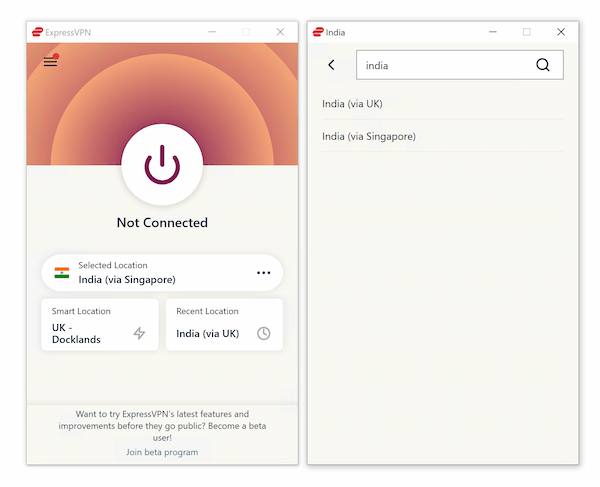VPNs with a data cap receive a reduction to their overall rating.
Below is a more detailed walkthrough of our India-specific testing methodology:
1. India Server Locations: 30%
Minimum Requirement: A virtual server location in India.
We Recommend: Multiple virtual servers in India, covering a variety of locations.
To qualify for this list, it’s essential for a VPN to have a virtual India server location. Without one, it’s impossible to obtain an Indian IP address.
It’s also important that the VPN service uses a virtual server, instead of a physical one, to avoid India’s intrusive VPN laws.
We expect the very best India VPNs to provide server coverage across the country. This minimizes speed loss by reducing the distance between the user and the VPN server.
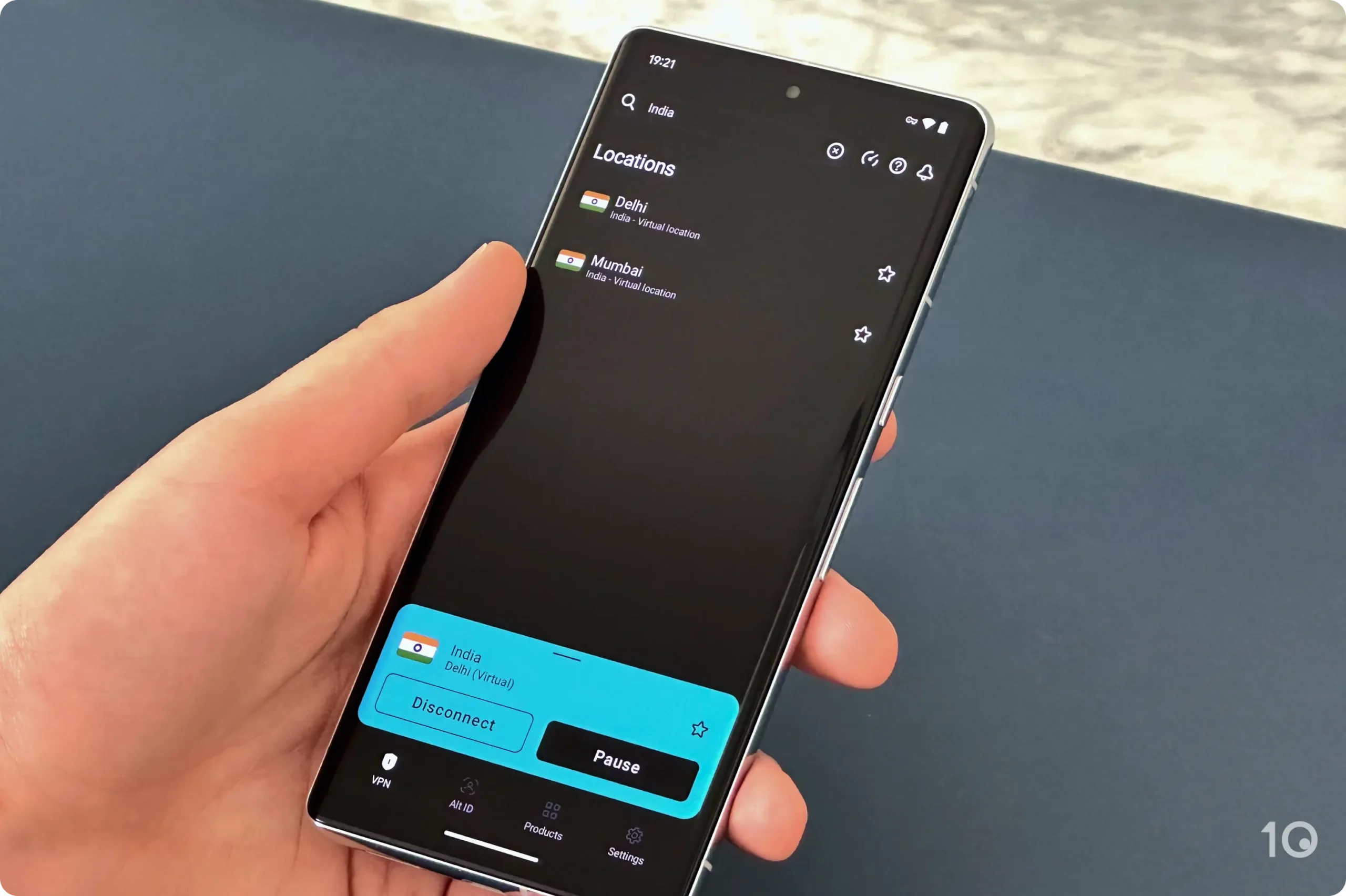
2. India Streaming: 30%
Minimum Requirement: Unblocks Hotstar and Netflix India.
We Recommend: All of the above, as well as Amazon Prime Video India and JioCinema.
Due to licensing and distribution agreements, streaming services are often required to geo-restrict their content to specific regions.
The best VPNs for India are capable of bypassing these geo-blocks and streaming content that’s exclusive to India.
To calculate this category’s rating, we regularly test every VPN’s ability to unblock popular Indian streaming services from outside India.
This includes Disney+ Hotstar, JioCinema, Netflix India, and Amazon’s India originals.
3. Speed: 20%
Minimum Requirement: An average international download speed greater than 60Mbps, and ping lower than 100ms.
We Recommend: An average international download download speed above 80Mbps, and ping lower than 50ms.
All of our shortlisted VPNs use fast and modern tunneling protocols to minimize the impact on your connection speeds.
A fast download speed is vital for streaming content in HD quality, without any buffering or long load times.
Additionally, a low ping time ensures that you can play games like BGMI, lag-free.
4.Security & Technical Features: 10%
Minimum Requirement: Secure open-sourced protocols and AES-256 or equivalent encryption.
We Recommend: All of the above, as well as leak protection and a working kill switch.
Without strong VPN encryption, your browsing activity will be visible when connecting into India.
This includes any streaming services you use, websites you access, and files you share.
To anonymize your web activity, the VPNs we’ve shortlisted all use AES-256 or ChaCha20 encryption.
They also use open-sourced and dependable VPN protocols like OpenVPN or WireGuard. This allows the apps to establish a secure connection between your device and the VPN server in India.
5. Privacy & Logging Policy: 10%
Minimum Requirement: Minimal logging policy, proven by a court case or an independent audit.
We Recommend: No-logs policy verified by real-world events, trustworthy ownership, and diskless servers.
A VPN provider’s logging policy outlines how much information it monitors and collects about your online activity.
It’s vital to use a VPN with minimal logging practices to safeguard your personal data against hackers and law enforcement agencies.
As a result, every VPN we’ve recommended for India logs a minimal amount of data or no data at all.
We’ve also highlighted VPNs that take extra measures to protect your online privacy, such as using RAM servers.
Additional Testing Criteria
Along with our five key testing categories, we take into consideration other factors when determining the best India VPNs.
These additional factors do not affect the calculation of our overall India rating, but they do influence which VPNs we consider for the shortlist.
We automatically exclude any VPNs with blocked websites in India, or those that have withdrawn their service from the region.
Alongside robust encryption and modern tunneling protocols, we reward VPNs that prioritize users’ online safety and privacy in India. This includes providing anonymous payment methods and implementing virtual servers to sidestep India’s VPN data law.
Lastly, we take into account the availability of free trials and the length of money-back guarantees.
